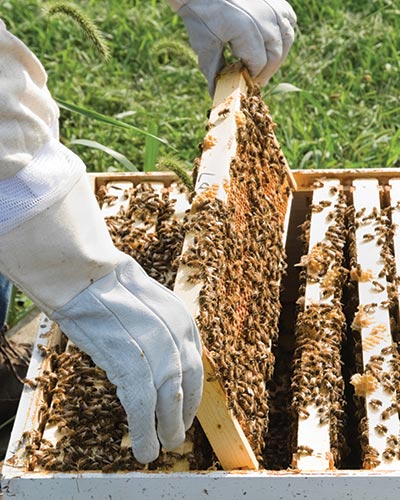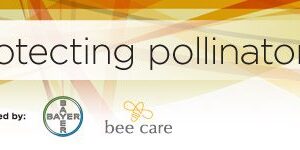A colony of healthy honeybees is like a super-organism — individual bees provide the cohesiveness and interplay among its cells and tissues by delivering pollen and nectar containing nutrients necessary for growth and survival. Better nutrition gives the colony a strong immune system and the means to stay healthy.
Many recent indicators point to a decline in honeybee health. Sick and weakened bees diminish the colony’s resiliency, leading to a condition often referred to as colony collapse disorder, or CCD. Most scientists agree that the four main stressors are parasites, pathogens, pesticides and poor nutrition.
Led by Task Force Chair Marla Spivak, the authors of this commentary examine the state of honeybee health, including recent declines in population. They also explain why the public should be concerned. Honeybee pollination “contributes directly to the economy and food security. Human nutrition depends heavily on honeybees.”
This science-based paper looks at the stressors threatening colony health. The task force authors then offer concrete ways that bees could be protected:
- Integrated pest management approaches.
- Best management practices such as curtailing pesticide drift and preventing off-label use.
- Better record keeping and communication about management and practices.
- Increased availability of high-quality floral nutrition for bees in urban and agricultural settings.
- Land management activities and policy decisions that are informed through science.
Most scientists and beekeepers agree that honey bee health decline is the result of multiple stressors. The authors of this paper believe that solutions will come by increasing pollinator foraging opportunities and enriching the natural habitat. “Careful and appropriate pesticide use, conservation, and sustainable agriculture practices will help ensure the availability of the pollinators needed to secure a stable food supply.”
This CAST Commentary and its companion Ag quickCAST are available online at the CAST website. Task Force authors are: Marla Spivak (chair), University of Minnesota, St. Paul; Zac Browning, commercial beekeeper, Jamestown, North Dakota; Mike Goblirsch, University of Minnesota, St. Paul; Katie Lee, University of Minnesota, St. Paul; Clint Otto, U.S. Geological Survey, Jamestown, North Dakota; Matthew Smart, U.S. Geological Survey, Jamestown, North Dakota; and Judy Wu-Smart, University of Nebraska, Lincoln.













